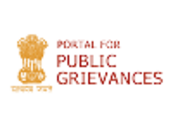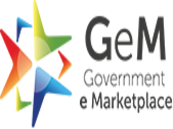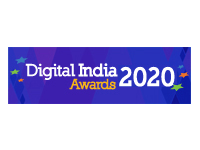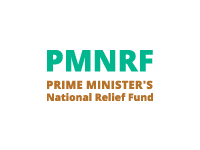Dr. Susanne Ornager
UNESCO Regional Adviser for Asia and Pacific
920 Sukhumvit Road, Bangkok 10110, Thailand
Email: s[dot]ornager[at]unesco[dot]proap[dot]org
ABSTRACT
Describes the role of UNESCO in the digital content development for information societies with special reference to the Asia and Pacific region within the umbrella of Information for All Programme. The points discussed include development of international, regional and national information policies; development of human resources and capabilities for the information age; strengthening institutions as gateways to information; and development of information processing and management tools and systems.
KEYWORDS: UNESCO; Information for All Programme; Digital content development; Information societies; Asia and Pacific region.
INTRODUCTION
UNESCO's mandate "to promote the free flow of ideas by word and image"' clearly indicates the part that the Organization is called upon to play in making information and knowledge freely accessible to all, with the ultimate objective of bridging the gap between the information rich and the information poor. To achieve this end and according to its constitutional mandate, UNESCO shall "maintain, increase and diffuse knowledge" by ensuring the "conservation and protection" of the world's recorded knowledge. Furthermore, the Organization shall encourage "co-operation among nations ... in the exchange of publications" and other information materials and initiate "methods of international cooperation calculated to give the people of all countries access to printed and published material produced by any of them".
International intellectual cooperation is of the utmost importance in a global environment, which is led by rapid developments of information and communication technology (ICT) and increased convergence in all its applications. The consequences of these developments, particularly in education, science, culture and communication, are affecting, either directly or indirectly, all Member States, groups and individuals, in very different ways. Particularly people in developing countries must, at all cost, be empowered to participate fully in the global society and to gain maximum benefit from effective and efficient access to information.
In this context UNESCO with its mandate to promote the "intellectual and moral solidarity of mankind" is uniquely well placed to provide a forum for international debate, and to contribute to policy-making especially at international and regional levels. Policy-making must focus on preservation and access to information, with particular emphasis on information in the public domain, on capacity building, as well as on networking among key institutions, such as archives, libraries, and other information centres.
UNESCO's Information for All (IFA) Programme shall be a key participant in the fulfillment of UNESCO's mandate to contribute to "education for all", to the "free exchange of ideas and knowledge" and to "increase the means of communication between peoples".
Digital Content Development within Information for All Programme
The IFA programme was approved by the Executive Board at its 159th session replacing the General Information Programme (PGI) and the Intergovernmental Informatics Programme (IIP) merging "the content and the tool". IFA gives priority to working with and through all UNESCO Sectors in the adaptation of ICT to their activities. The programme itself provides a platform for international policy discussions and guidelines for action on the following areas: Preservation of information and universal access to it; Participation of all in the emerging global information society; and Ethical, legal and societal consequences of ICT developments.
In the IFA programme it is stated, "It should also be understood that priorities, strategies and activities might vary from region to region depending on the local economic, social and cultural situation". In quoting the IFA areas it is presumed that the above sentence covers Asia and Pacific, and further that the digital content development is present within all the areas into which the IFA programme is divided.
The first area, which IFA is planned to cover, is: Development of international, regional and national information policies. In general, electronic government services can be distinguished according to the main functions they perform, which are:
* Information services - where one can retrieve sorted and classified information on demand (e.g. www sites);
* Community services - to interact with individuals or groups of people (e.g. via e-mail or discussion fora); and
* Transaction service - to acquire products or services online or to submit data (e.g. government forms, voting etc.).
The effort involves collaboration with civil societies (including any national and local library and information association) to be encouraged in order to develop the appropriate standards and systems to facilitate the digitization and availability of government information on Internet or Intranet for the public benefit. A revolutionary use of Internet information infrastructure would be the development of electronic democracy allowing citizens to express their views on a variety of issues.
Although it is not quite about digital content development I want to mention that UNESCO supports the establishment of Internet awareness seminars among policy makers. UNESCO is having the second seminar early in May on this issue. Further UNESCO encourages public authorities to demonstrate leadership in making government and official information available electronically to their citizens, reflecting their own culture, language and heritage. UNESCO supports the formulation and implementation of the national policies and information awareness on ethical issues in the digital era, and takes appropriate steps to arrive at an international consensus of uniform international community standards and norms in the context of the digital age.
Accessing the social benefits of the Asia and Pacific information policy (IP) is premature since few studies have been done in Asia and Pacific. Such effort, when we have more studies to choose from, will provide useful policy implications in the cooperative strategy to build the Asia Pacific IP and to have it digitized as "best practices" on the Internet.
The Memory of the World (MoW) programme has a regional office in Malaysia headed by the National Archives. One of the knowledgeable projects about this region is the Archives of the Dutch East India Company, which will be made electronically accessible in cooperation with UNESCO within the MoW programme.
Archives have established regional associations in Asia to take care of access and preservation of the published and the documentary heritage of the region, the associations are called SEAPAVAA and SEACAP. The first association develops audiovisual archiving at the national, regional and international levels. The second aims at microfilming the paper-based archival material. They both intend to provide a regional forum for addressing common issues and concerns related to the collection, preservation and provision of access to the document and audiovisual heritage of Member countries. In the region the agencies serve local communities and scholars worldwide in providing access to materials relating to Asia, and enhance preservation activities in the region within the MoW programme. UNESCO has sustained the development of the home pages for the organizations.
UNESCO promotes the training in accessing and preserving the published and the documentary heritage of the region by emphasizing the use of new technologies. Action will focus on training of trainers and improvement of local training expertise.
The second area is: The Development of human resources and capabilities for the information age. One can mention that the role of information technology in Asia and Pacific has evolved from that of an administrative support tool to that of a major catalyst for change and a major enabler for its implementation.
Users of information technology generally expect it to deliver timeliness, cost assurance, quality and value results. A key element in achieving these results is the establishment and utilisation of centres of excellence in which processes are well defined and managed, and where skills can develop in a consistent and focused way. Studies have shown very large productivity differences between the best and worst development teams and these productivity gaps remain, even with the introduction of new tools and techniques. UNESCO endorses surveys in chosen countries of the region to obtain comparative data. The qualitative and quantitative information will be employed in creating a Clearing House information center on best practices.
To promote the effective use of information and knowledge especially to eliminate the hindrance between the "haves" and "have nots", many countries need to educate and train trainers on the use of Internet information and one method may be by distance learning (DL). However, there is a drawback to the use of DL.
This is especially important in Asia and Pacific, where the rush to emulate every single trend in virtual education seems to be accelerating as entrepreneurs realize the massive profits crying out to be taped by such schemes. While the democratisation of education should be qualitatively linked to virtual media, such media should not be an end to themselves in the pursuit of continuing education. Virtual media should be complimentary rather than alternative products of learning and should aim to develop knowledgeable individuals, not mere information receivers.
UNESCO is establishing pilot projects to demonstrate the social and economic impact of the provision of ICT and services in the rural areas by supporting the development of multipurpose community telecentres (MCT) connected to Radio Browse the Internet (RBI).
By itself, an MCT overcomes the technological barriers to communication, access and exchange of information with the rest of the world. Through training schemes and the presence of information personnel, it can offer to a wide range of people, and not only the best-educated, the possibility of using its resources individually or in small groups. The use made of the MCT by certain members of the community - teachers, health workers, etc - can be of great benefit to whole segments of that community: students, patients, etc. However, an MCT cannot serve a mass public. Moreover, it can only overcome the obstacles of illiteracy or lack of knowledge of national or international languages through the introduction of specially-designed software. To reach a mass public in local languages and through the spoken word, the linkage of the MCT with community radio is essential.
Community radio presents information from the Internet to their listeners. The RBI programme raises awareness among the listeners by providing all Internet information in the radio programme in the local language, which make community people being better integrated in the national life. The computer(s) are provided for young people giving free access and guidance to find necessary resources on the Internet, building a kind of cyber cafe for surfing the Web.
Community radio and MCTs are clearly complementary and can function in parallel in the same community, offering a broad spectrum of distinct services. However, when their traditional and innovative technologies are actively combined, they can offer far greater possibilities for engaging a community in its own development. The possibilities generated by the combination of the two are not confined to quantity or range; the qualitative nature of those possibilities also changes. Such a combination permits the implementation of Community Multimedia Centres (CMCs), which are people-oriented, community-owned, and development support facilities.
Many initiatives aim at exchanging experience among networks within the same field. Emphasis is on existing networks in Asia and Pacific where UNESCO encourages them to set up one or more regional portals. The portals can include methodologies, curriculum development and past experiences to be shared among schools, universities, information and research institutions, etc.
The third area is: Strengthening institutions as gateways to information, where the conditions in Asia and Pacific differ from region to region depending on the local economic, social and cultural situation. In some areas the information institutions play a strong and efficient role providing services to an expanding clientele in a fast changing environment where accurate and relevant information is at the heart of competitive advantage framework. In other regions the number of capable persons and institutions still lack equipment and technical support to build expertise. Furthermore, other factors that need to be developed are law and regulative systems. The issue of strengthening regional arrangements and intra-regional networks has to be brought forward to be high in the agenda of regional forums.
Keeping in step with changes and development in a technology-driven environment is evidently a big challenge for Asia and Pacific. Finding the balance between the physical and digital services is another. Along with the increasingly varied demands of an expanding client base, there are the rising expectations, too.
The fourth area is: Development of information processing and management tools and systems. Initiatives aimed at changing the current management trend from having the organisation's directions determined by the operational needs of its programs, to a more cross-organisation development is to be supported by UNESCO.
UNESCO also gives priority to the development and implementation of roadmaps for the ongoing improvement, deployment and management of ICT. Such maps would clearly articulate the mission of ICT, describe a vision of client service and establish an environment for execution, which harnesses the potential for change.
The fifth area is: Information technology (IT) for education, science, culture and communication. UNESCO promotes the study on regional needs analyses on the development and implementation of the management of IT. The study will focus on different scenarios involving the management of IT and distribute the results to interested countries in the region.
Fragmented policy setting constrains the emergence of a shared vision both within the countries and in Asia and Pacific about the use of IT. To develop more coordinated directions, promotion of the use of IT in all sectors stressing the necessity for cross-organisation strategies and developments are supported by UNESCO, paying particular attention to the creation of awareness among all involved sectors and the development of a system on needs and trends in the use of IT.
CONCLUSION
For UNESCO, Intersectoral projects are a new concept. By presenting a common intersectoral programme the forces in UNESCO can be pooled together as a benefit for the Member States. One of the priority areas for CL is the IFA programme. It requires effective collaboration and liaison with a diverse and increasing number of interested parties. Therefore, the programme shall emphasise and enhance the role of external collaboration and partnering in its work within UNESCO and in its support of external programmes. It shall seek cooperation with other international programmes within and outside the UN family in order to harmonise positions and policies. Collaboration with stakeholder NGOs and the private sector shall be established in order to create a multiplier effect from improved communication and collaboration to contribute to achieving the objectives of the programme. Internal cooperation shall be enhanced so that the IFA programme becomes a close partner of UNESCO sectors. The programme shall use ICT in implementing its activities and to establish permanent dialogue with interested communities.
* `Constitution of UNESCO, Article 1; all the following quotations in Introduction' are from the same source.
Appendix
Area 1: Development of international, regional and national information policies
Indications of expected results (Time frame: UNESCO's medium-term strategy 2002-2007)
- International consensus on the concept of universal and equitable access to information as a basic human right established.
- International consensus on a framework of ethical and legal principles related to cyberspace established.
- International Observatory on international, regional and national information policies established.
- Clearing House on best practices on ICT-based governance establshed.
- International framewoek on the safeguarding of the world's information heritage established.
- International agreement on policies governing the exchange of information required for global environment and climate monitoring.
| Background | Strategy | Activities |
|
|
|
Area 2: Development of human resources and capabilities for the information age
Indications of expected results (Time frame: UNESCO's medium-term strategy 2002-2007)
- International framework for ensuring basic literacy and ICT literacy established
- ICT-based training networks for information specialists in all regions established
- Franework for cooperation and information exchange about the content and quality of training in the information area established
- Introduction of e-publishing and e-commerce training activities for publishers and producer
| Background | Strategy | Activities |
|
|
|
Area 3: Strengthening institutions as gateways to information
Indications of expected results (Time frame: UNESCO's medium-term strategy 2002-2007)
- UNESCO portal to information institutions worldwide established.
- National public gateways to information in several countries of all regions established
- National digitization policies established in four countries per region
- Standards for the management and preservation of recorded knowledge established
| Background | Strategy | Activities |
|
|
|
Area 4: Development of of information processing and management tools and systems
Indications of expected results (Time frame: UNESCO's medium-term strategy 2002-2007)
- Regional needs analysis and policy planning in the creation of information management tools established
- Multilingual corpus of freely accessible information management tools created
- Collections of best practices and standard in information management prepared and tested
| Background | Strategy | Activities |
|
|
|
Area 5: Information technology for education, science, culture and communication
Indications of expected results (Time frame: UNESCO's medium-term strategy 2002-2007)
- Multi and trans- sectorial information intelligence platform to assist all UNESCO's programmes in formulating and taking inforned decisions established
- Monitoring system on needs and trends in the use of ICT to favour lifelong learning for all established
- Education portal including the involvement of /links to virtual universities established ( following a feasibility study)
- International best practicles in the area of electronic publication in science established
- International guidelines for ensuring networked access to scientific information established
- Environmental data and information exchange networks and data centers in developing countries expanded, particularly in Africa
- Substantial progress made in networking cultural and media workers and institutions world-wide in the service of peace, understanding and development
- International framework on multilingualism and multiculturalism in cyberspace established
- World Observatory on the development of the media in the information society established
| Background | Strategy | Activities |
|
Education
|
Education
|
Education
|
|
Science
|
Science
|
Science
|
|
Culture
|
Culture
|
Culture
|
|
Communication
|
Communication
|
Communication
|
Information Today & Tomorrow, Vol. 20, No. 2, June 2001, p.3-p.10
http://itt.nissat.tripod.com/itt0102/susanne.htm
On this website in all email addresses [at] = @ and [dot] =





















